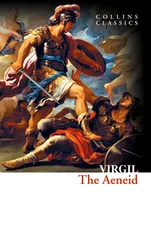Virgil - The Bucolics and Eclogues
Здесь есть возможность читать онлайн «Virgil - The Bucolics and Eclogues» — ознакомительный отрывок электронной книги совершенно бесплатно, а после прочтения отрывка купить полную версию. В некоторых случаях можно слушать аудио, скачать через торрент в формате fb2 и присутствует краткое содержание. Жанр: foreign_poetry, Поэзия, foreign_antique, foreign_prose, на английском языке. Описание произведения, (предисловие) а так же отзывы посетителей доступны на портале библиотеки ЛибКат.
- Название:The Bucolics and Eclogues
- Автор:
- Жанр:
- Год:неизвестен
- ISBN:нет данных
- Рейтинг книги:4 / 5. Голосов: 1
-
Избранное:Добавить в избранное
- Отзывы:
-
Ваша оценка:
- 80
- 1
- 2
- 3
- 4
- 5
The Bucolics and Eclogues: краткое содержание, описание и аннотация
Предлагаем к чтению аннотацию, описание, краткое содержание или предисловие (зависит от того, что написал сам автор книги «The Bucolics and Eclogues»). Если вы не нашли необходимую информацию о книге — напишите в комментариях, мы постараемся отыскать её.
The Bucolics and Eclogues — читать онлайн ознакомительный отрывок
Ниже представлен текст книги, разбитый по страницам. Система сохранения места последней прочитанной страницы, позволяет с удобством читать онлайн бесплатно книгу «The Bucolics and Eclogues», без необходимости каждый раз заново искать на чём Вы остановились. Поставьте закладку, и сможете в любой момент перейти на страницу, на которой закончили чтение.
Интервал:
Закладка:
Virgil
The Bucolics and Eclogues
ECLOGUE I
MELIBOEUS
TITYRUS
You, Tityrus, 'neath a broad beech-canopy
Reclining, on the slender oat rehearse
Your silvan ditties: I from my sweet fields,
And home's familiar bounds, even now depart.
Exiled from home am I; while, Tityrus, you
Sit careless in the shade, and, at your call,
"Fair Amaryllis" bid the woods resound.
O Meliboeus, 'twas a god vouchsafed
This ease to us, for him a god will I
Deem ever, and from my folds a tender lamb
Oft with its life-blood shall his altar stain.
His gift it is that, as your eyes may see,
My kine may roam at large, and I myself
Play on my shepherd's pipe what songs I will.
I grudge you not the boon, but marvel more,
Such wide confusion fills the country-side.
See, sick at heart I drive my she-goats on,
And this one, O my Tityrus, scarce can lead:
For 'mid the hazel-thicket here but now
She dropped her new-yeaned twins on the bare flint,
Hope of the flock- an ill, I mind me well,
Which many a time, but for my blinded sense,
The thunder-stricken oak foretold, oft too
From hollow trunk the raven's ominous cry.
But who this god of yours? Come, Tityrus, tell.
The city, Meliboeus, they call Rome,
I, simpleton, deemed like this town of ours,
Whereto we shepherds oft are wont to drive
The younglings of the flock: so too I knew
Whelps to resemble dogs, and kids their dams,
Comparing small with great; but this as far
Above all other cities rears her head
As cypress above pliant osier towers.
And what so potent cause took you to Rome?
Freedom, which, though belated, cast at length
Her eyes upon the sluggard, when my beard
'Gan whiter fall beneath the barber's blade-
Cast eyes, I say, and, though long tarrying, came,
Now when, from Galatea's yoke released,
I serve but Amaryllis: for I will own,
While Galatea reigned over me, I had
No hope of freedom, and no thought to save.
Though many a victim from my folds went forth,
Or rich cheese pressed for the unthankful town,
Never with laden hands returned I home.
I used to wonder, Amaryllis, why
You cried to heaven so sadly, and for whom
You left the apples hanging on the trees;
'Twas Tityrus was away. Why, Tityrus,
The very pines, the very water-springs,
The very vineyards, cried aloud for you.
What could I do? how else from bonds be freed,
Or otherwhere find gods so nigh to aid?
There, Meliboeus, I saw that youth to whom
Yearly for twice six days my altars smoke.
There instant answer gave he to my suit,
"Feed, as before, your kine, boys, rear your bulls."
So in old age, you happy man, your fields
Will still be yours, and ample for your need!
Though, with bare stones o'erspread, the pastures all
Be choked with rushy mire, your ewes with young
By no strange fodder will be tried, nor hurt
Through taint contagious of a neighbouring flock.
Happy old man, who 'mid familiar streams
And hallowed springs, will court the cooling shade!
Here, as of old, your neighbour's bordering hedge,
That feasts with willow-flower the Hybla bees,
Shall oft with gentle murmur lull to sleep,
While the leaf-dresser beneath some tall rock
Uplifts his song, nor cease their cooings hoarse
The wood-pigeons that are your heart's delight,
Nor doves their moaning in the elm-tree top.
Sooner shall light stags, therefore, feed in air,
The seas their fish leave naked on the strand,
Germans and Parthians shift their natural bounds,
And these the Arar, those the Tigris drink,
Than from my heart his face and memory fade.
But we far hence, to burning Libya some,
Some to the Scythian steppes, or thy swift flood,
Cretan Oaxes, now must wend our way,
Or Britain, from the whole world sundered far.
Ah! shall I ever in aftertime behold
My native bounds- see many a harvest hence
With ravished eyes the lowly turf-roofed cot
Where I was king? These fallows, trimmed so fair,
Some brutal soldier will possess these fields
An alien master. Ah! to what a pass
Has civil discord brought our hapless folk!
For such as these, then, were our furrows sown!
Now, Meliboeus, graft your pears, now set
Your vines in order! Go, once happy flock,
My she-goats, go. Never again shall I,
Stretched in green cave, behold you from afar
Hang from the bushy rock; my songs are sung;
Never again will you, with me to tend,
On clover-flower, or bitter willows, browse.
Yet here, this night, you might repose with me,
On green leaves pillowed: apples ripe have I,
Soft chestnuts, and of curdled milk enow.
And, see, the farm-roof chimneys smoke afar,
And from the hills the shadows lengthening fall!
ECLOGUE II
ALEXIS
The shepherd Corydon with love was fired
For fair Alexis, his own master's joy:
No room for hope had he, yet, none the less,
The thick-leaved shadowy-soaring beech-tree grove
Still would he haunt, and there alone, as thus,
To woods and hills pour forth his artless strains.
"Cruel Alexis, heed you naught my songs?
Have you no pity? you'll drive me to my death.
Now even the cattle court the cooling shade
And the green lizard hides him in the thorn:
Now for tired mowers, with the fierce heat spent,
Pounds Thestilis her mess of savoury herbs,
Wild thyme and garlic. I, with none beside,
Save hoarse cicalas shrilling through the brake,
Still track your footprints 'neath the broiling sun.
Better have borne the petulant proud disdain
Of Amaryllis, or Menalcas wooed,
Albeit he was so dark, and you so fair!
Trust not too much to colour, beauteous boy;
White privets fall, dark hyacinths are culled.
You scorn me, Alexis, who or what I am
Care not to ask- how rich in flocks, or how
In snow-white milk abounding: yet for me
Roam on Sicilian hills a thousand lambs;
Summer or winter, still my milk-pails brim.
I sing as erst Amphion of Circe sang,
What time he went to call his cattle home
On Attic Aracynthus. Nor am I
So ill to look on: lately on the beach
I saw myself, when winds had stilled the sea,
And, if that mirror lie not, would not fear
Daphnis to challenge, though yourself were judge.
Ah! were you but content with me to dwell.
Some lowly cot in the rough fields our home,
Shoot down the stags, or with green osier-wand
Round up the straggling flock! There you with me
In silvan strains will learn to rival Pan.
Pan first with wax taught reed with reed to join;
For sheep alike and shepherd Pan hath care.
Nor with the reed's edge fear you to make rough
Your dainty lip; such arts as these to learn
What did Amyntas do?– what did he not?
A pipe have I, of hemlock-stalks compact
In lessening lengths, Damoetas' dying-gift:
'Mine once,' quoth he, 'now yours, as heir to own.'
Foolish Amyntas heard and envied me.
Ay, and two fawns, I risked my neck to find
In a steep glen, with coats white-dappled still,
Интервал:
Закладка:
Похожие книги на «The Bucolics and Eclogues»
Представляем Вашему вниманию похожие книги на «The Bucolics and Eclogues» списком для выбора. Мы отобрали схожую по названию и смыслу литературу в надежде предоставить читателям больше вариантов отыскать новые, интересные, ещё непрочитанные произведения.
Обсуждение, отзывы о книге «The Bucolics and Eclogues» и просто собственные мнения читателей. Оставьте ваши комментарии, напишите, что Вы думаете о произведении, его смысле или главных героях. Укажите что конкретно понравилось, а что нет, и почему Вы так считаете.












